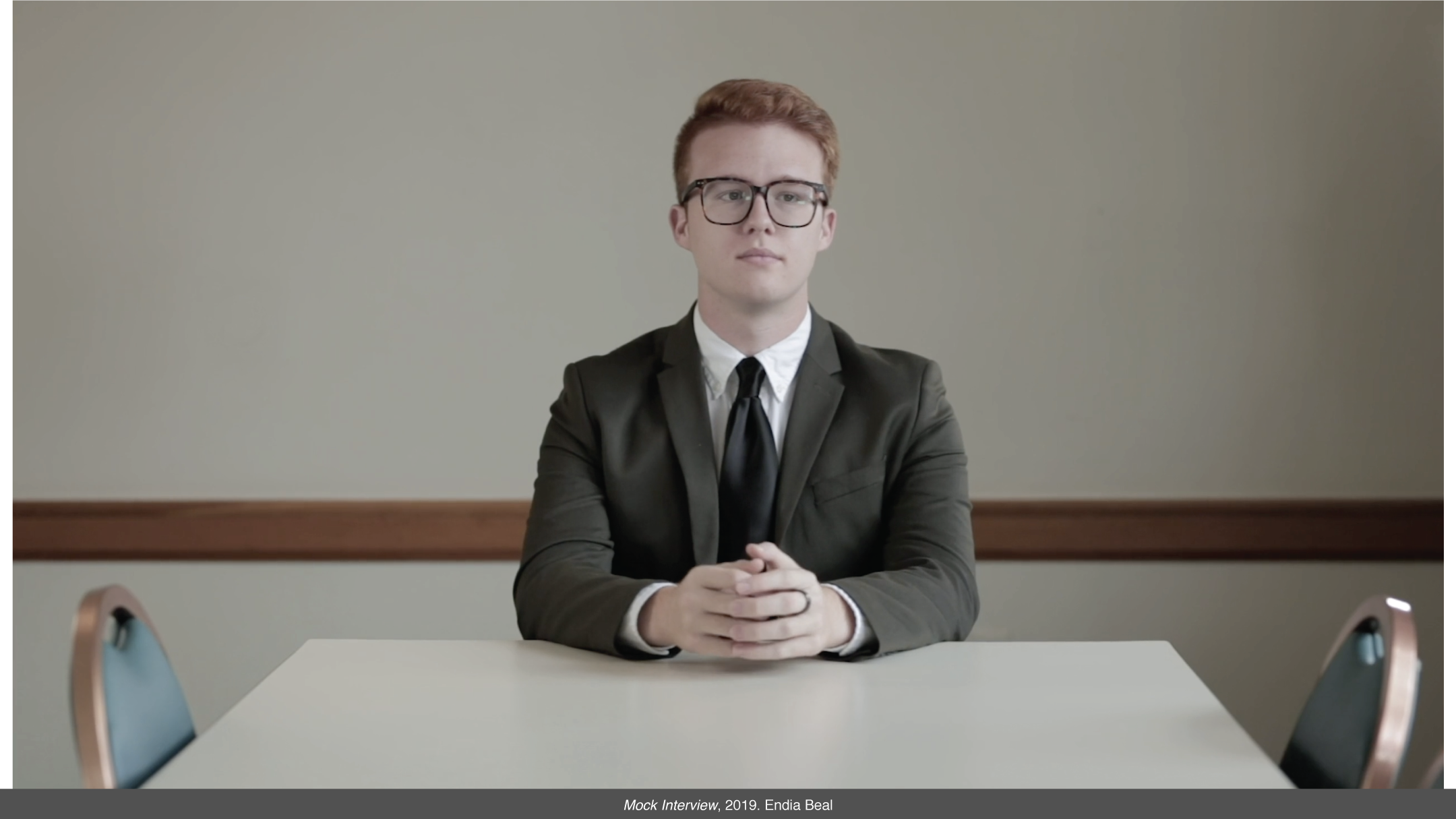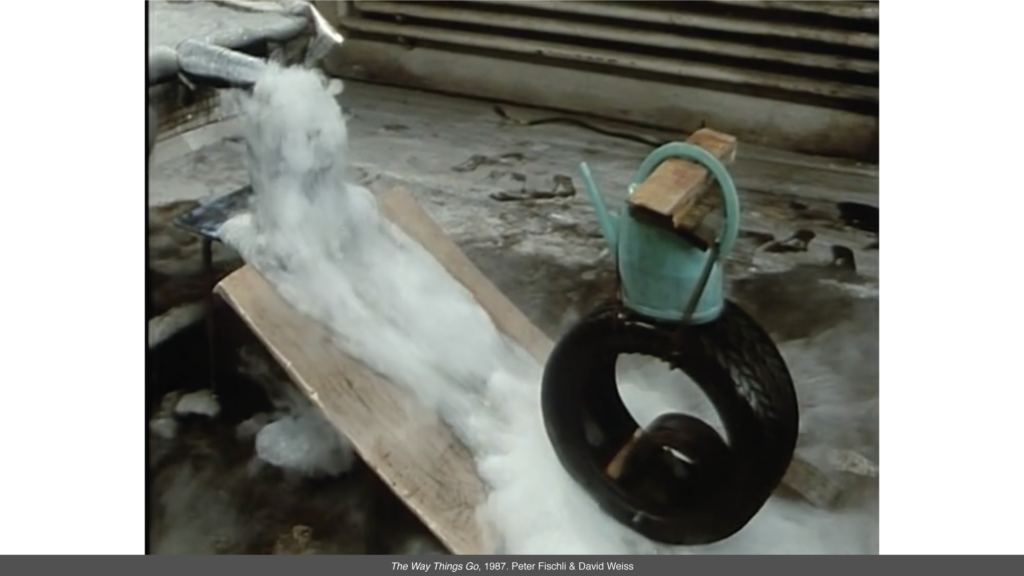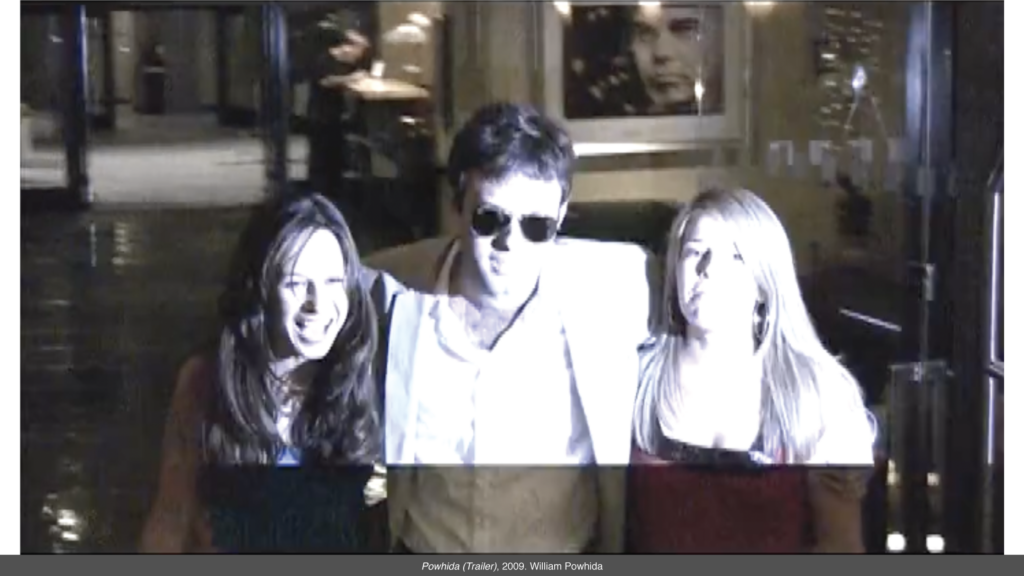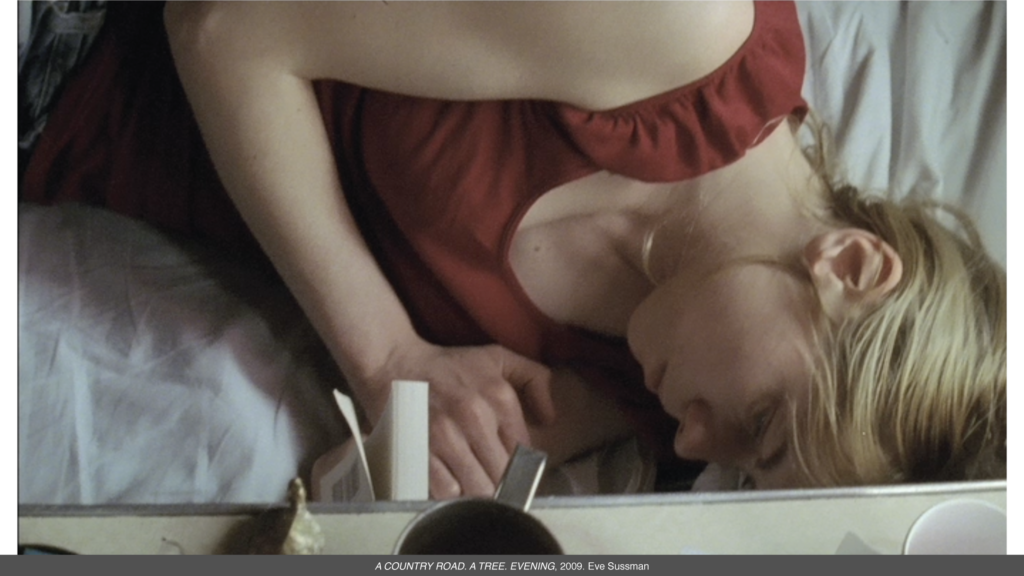frames per second

frames per second
JANUARY 31 – APRIL 8, 2022
MEZZANINE GALLERY
When COVID-19 lockdowns descended and art audiences found themselves hibernating behind computer screens, many institutions and galleries quickly moved to increase their output of available digital content. Since video art was designed to be accessed on screens, it was ready to be piped into homes around the world. But, just as lovers of paintings were impatient to see canvases in person, the shareability of video work revealed the fact that it is also a medium that thrives on physical, real world presentation beyond the leveling sameness of the computer screen.
Video art, which encompasses digital transfers of film and native digital video, as well as a range of new media and technology, represents some of today’s most exciting contemporary artwork. Frames Per Second showcases four videos – new and old – from Wake Forest Art Collections, shown together in Hanes Gallery for the first time.
The Way Things Go (1987) is a film by Swiss artists Peter Fischli & David Weiss. Called “the merry pranksters of contemporary art” by the New York Times, Fischli & Weiss built an enormous and precarious Rube Goldberg-like machine made of common household items such as tea kettles, tires, old shoes, balloons, ladders and wooden ramps. Then, with fire – lots of fire – water, gravity and chemistry, they created a spectacular 100 foot long chain reaction performance of physical interactions, chemical reactions, and precisely crafted mesmerizing chaos.
Once described as an “artist-cartoonist-flamethrower” by New York Magazine’s art critic Jerry Saltz, William Powhida parodies the hypocrisies, absurdities, and vanities of the high-art establishment through his alter-ego, also known as William Powhida. In this 2009 satirical movie trailer – Powhida (Trailer) – about the “world’s greatest artist, William Powhida,” the artist makes fun of the “celebrification” of the art world in 2009 to highlight the privileged, pampered egos of some of its members.
The title of Eve Sussman’s 2009 digital video, A COUNTRY ROAD. A TREE. EVENING, suggests a coherent storyline but in reality the work is composed of narrative and visual fragments. Set in 2016 in “A-City,” a future metropolis redolent of 1970s Soviet Union, the video plays like a visual tone poem, with elements of sci-fi and film noir. “A Country Road, a Tree” are staging notes for Samuel Beckett’s absurdist play, Waiting for Godot. The viewer of this video also waits for a closure that never arrives.
Winston-Salem artist Endia Beal has long been tackling issues of racial and social justice. A recent acquisition to Wake Forest Art Collections, the digital video Mock Interview (2019) brings to light patterns of misogyny and racial discrimminaiton in the corporate workplace to reveal the often overlooked and under-appreciated experiences unique to people of color. Beal recruited white male Wake Forest University students to participate and collaborate in this video.
Organization
Curated by Paul Bright and Jennifer Finkel from Wake Forest Art Collections.
The Way Things Go; Powhida (Trailer), and A COUNTRY ROAD. A TREE. EVENING. are gifts to Wake Forest Art Collections by Cristin Tierney (‘93) and James A. Shapiro.
Hanes Gallery, WFU: Paul Bright brightpb@wfu.edu | Kayla Amador amadke15@wfu.edu




